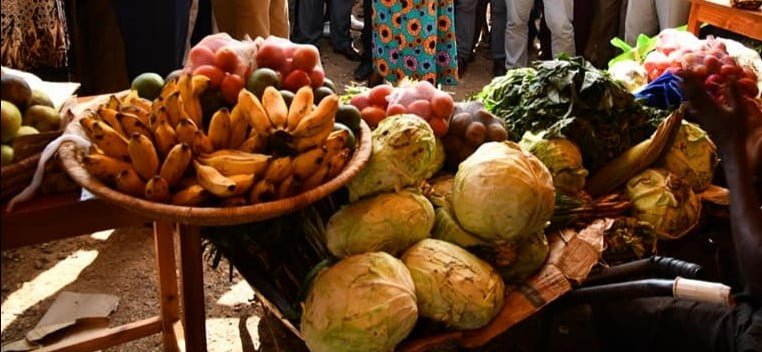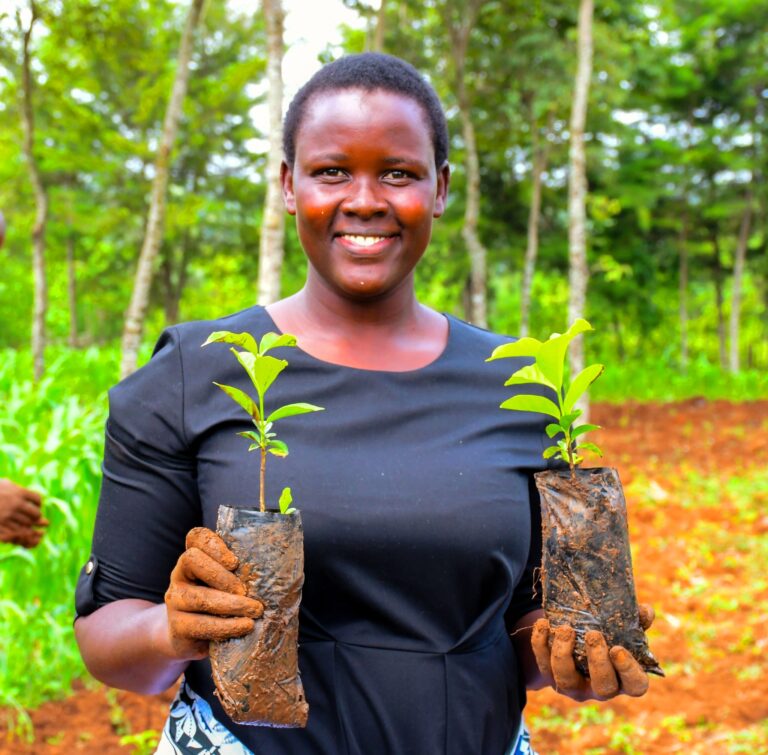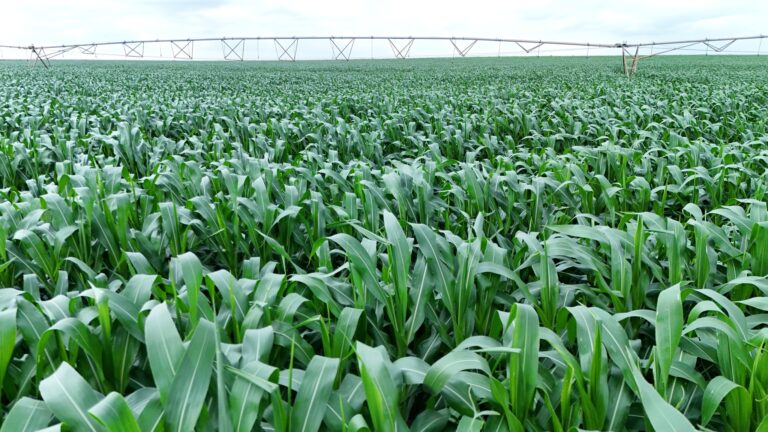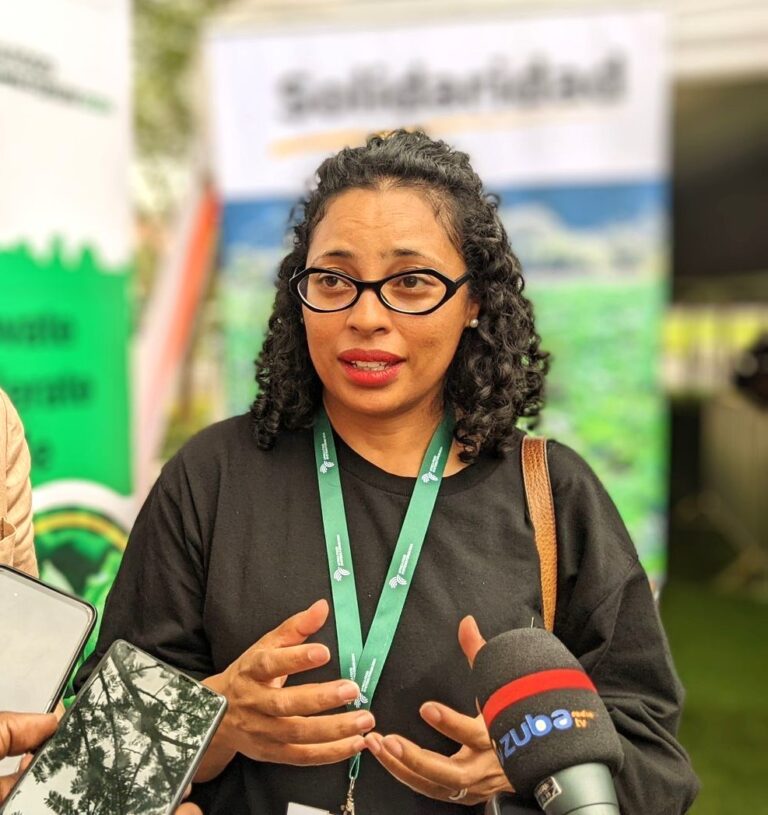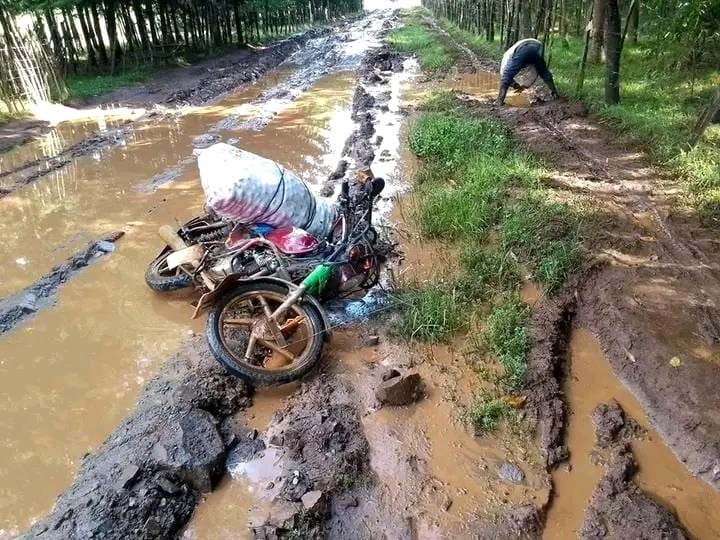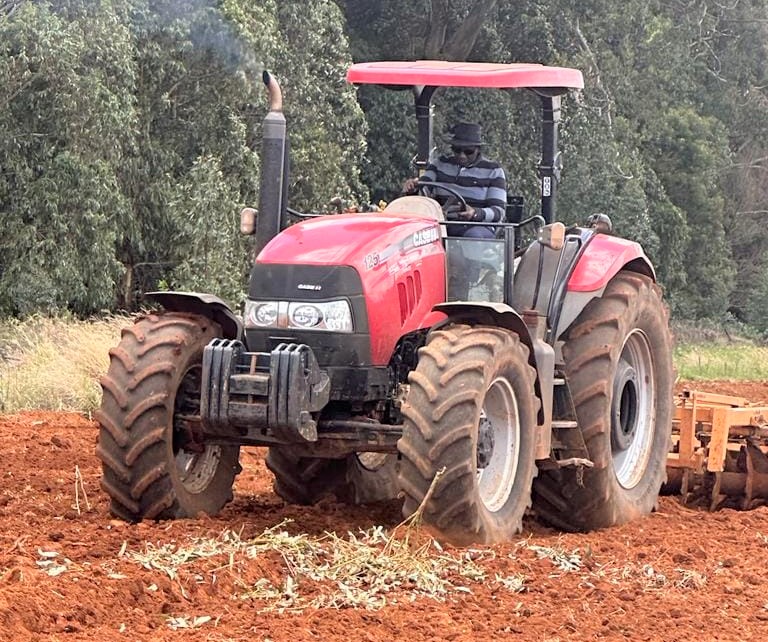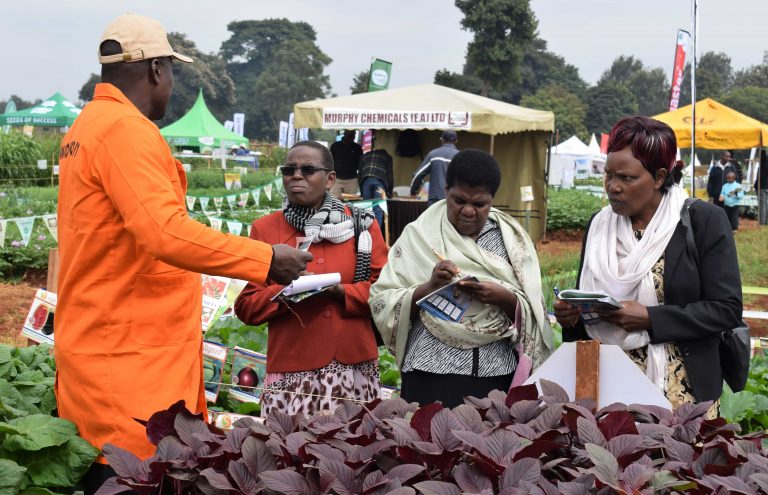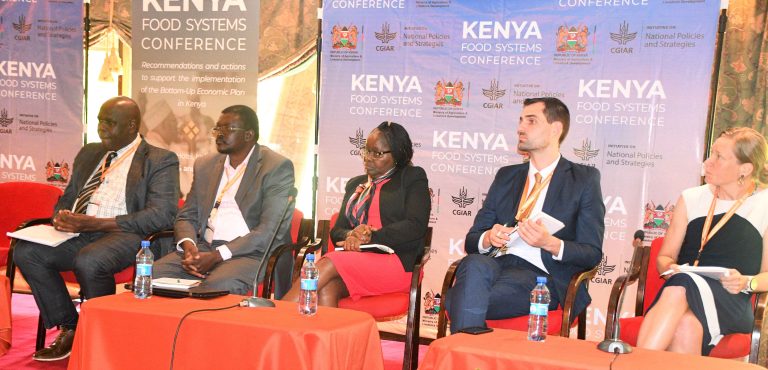By Dr. Richard Munang
“Your food is supposed to be your medicine and your medicine is supposed to be your food”
“If you give bad food to your stomach, it drums for you to dance”
These African proverbs underscore a basic yet most critical fact – what we eat, determines what our bodies become. The common saying “we are what we eat” is indeed not far from the truth. Whenever we fall sick, among the first areas of diagnosis, is usually what is ingested. In the same vein, among key aspects a recovering patient is prescribed to accelerate healing, is food.
What are we really eating?
In Sub Saharan Africa, urbanization is occurring at a rate of 3.6% – a rate that is almost double the world average. With these transitions, comes an increase in food demand and a rise in urban farms and informal food traders. These are traders who are largely non-compliant with municipal licensing and regulation. And the market they serve is significant. For example, up to 90% of supply of leafy vegetables in some Africa cities is sourced from urban farms and supplied through informal traders.
This is critical to not only driving food security in urban Africa but also creating primary and supplemental income opportunities. In some cities, the economic return to urban farmers has been estimated to be comparable to the income of unskilled construction workers and on some cases more lucrative. During dry seasons, in some cities, farmers using wastewater irrigation, which is free, can sell vegetables at above double the wet-season price. Urban agriculture incomes are also estimated to be up to 50% above minimum wage.

The economic and social benefits of urban farming notwithstanding, the food safety and health concerns stand out as critical. Among health risks associated with urban farming include hazardous biological and chemical exposures among farmers and consumers as a result of wastewater use on vegetable crops. Microbial as well as heavy metal contamination on vegetable samples obtained from sewage irrigated urban farms in the continent have been found to contain lead contamination that is up to 3.9 times higher than recommended limits. This is in addition of high soil concentration levels of other heavy metals including cadmium, chromium, copper, nickel, lead and zinc.
If current balances persist for another one to two decades, vegetables raised in some of these urban gardens will likely be unsuitable for human consumption. This sewage effluent also contains high levels of essential plant nutrients. As a result, some urban farmers prefer to use waste water, even where fresh water is available – because they get “free” fertilizer. As many as 60% of urban farmers in some Africa cities use waste water for irrigation. In just one African country, an estimated one million people in urban areas eat vegetables produced with polluted water every day.
Globally, waste water crop irrigation risks the health of nearly a billion people. These heavy metals are associated with diverse health risks – from cancer, to skin damage, kidney damage, heart diseases, anaemia, cholesterol and gastrointestinal disorders. Wastewater irrigation combines viciously with improper use of chemical fertilizers and agrochemicals to further compound risks. In some places, up to 85% of urban and peri-urban farmers have no formal training on application of chemical fertilizers which they use.
The writing is therefore on the wall. Food safety enforcement ought to go beyond traditional bureaucratic systems that find it challenging to police the informal food supply chain – especially in Africa’s urban areas.
Achieving food safety in Africa’s informal food supply chain under climate change
Informal food trade and supply chains are the major source of vegetables and fruits consumed by most people in African cities. Measures to inculcate food safety need to be urgently undertaken to reverse the silent suffering of millions of lives across the continent and elsewhere and this needs to be done in a way that works with the environment and not against it. Leveraging climate action solutions and a combination of incentives that can drive smart enforcement within local structures is the urgent imperative of now to save lives. To get us going in this direction, we cannot ignore realities.
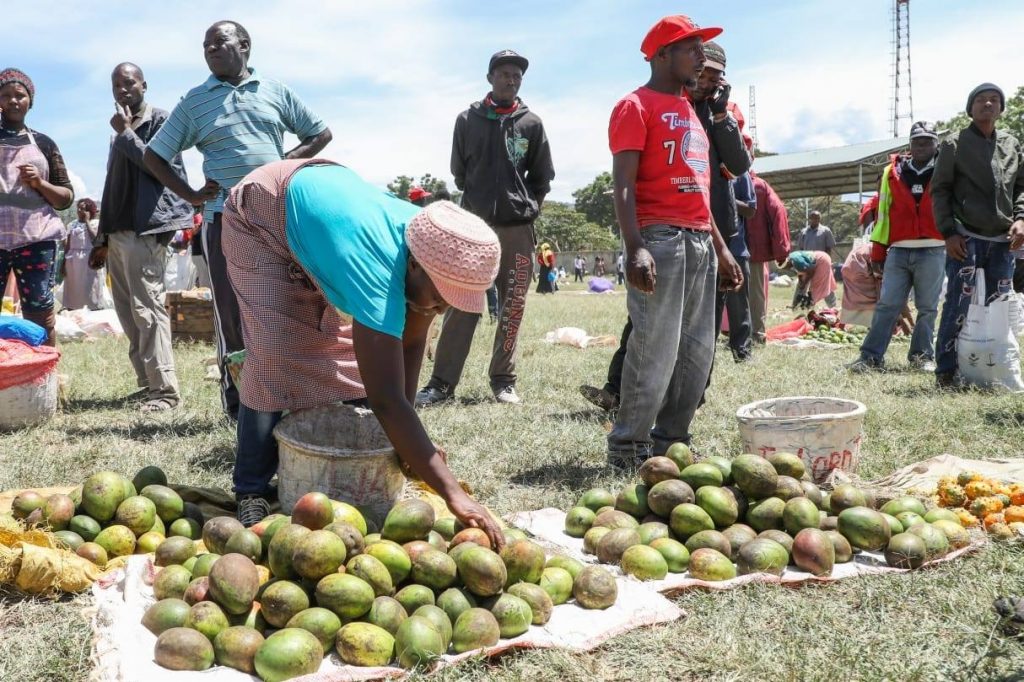
These informal food traders are part of Africa’s informal sector that accounts for over 80% of all employment in sub-Saharan Africa. This sector has also been described as the “present and future” of work in Africa. The increasing rate of urbanization provides a ready lucrative market for them, including urban farmers. This means that we must appreciate the fact that banning these informal traders is not an option. Rather what we need to do is enhance the level of traceability and accountability in how they conduct their enterprises.
To this end, the following will be key.
First, is traceability. The food from urban farms, sold by informal traders, must be traceable from farming to value addition until it reaches the final consumer. Every bunch of green leafy vegetables we pick at our local informal trader – popularly known as “mama mbogas” in Swahili slang, must accounted for on how it was cultivated and farmed to ensure they are free from any form of dangerous contamination resulting from improper chemical fertilizer use, harmful effluent and wastewater irrigation.
And here, through country national standards bureau and regulators, policy frameworks already exist. What needs to happen is to have them implemented in a manner such that they incentivize use of climate action solutions. Specifically, Ecosystems Based Adaptation (EBA) approaches such as use of organic fertilizer and organic pesticides, metred application of mineral fertilizers in what is called fertilizer micro-dosing to enhance soil nutrient, agroforestry etc., for on-farm cultivation and accessible and affordable clean energy solutions for value addition. Use of EBA approaches is scientifically proven and is known to increase yields up to 128% under the changing climate and result in food with better immune boosting micro-nutrients.
Affordable clean energy solutions of solar dryers have been proven to dehydrate food up to 48times faster that open sun drying and enable actors to preserve their harvest for longer to hit the market during peak demand. The result being up to 30 times more incomes. National standards regulators now need to adapt these climate action solutions as part of the suite of benchmarks for actualizing food safety. Where foods cultivated using EBA and processed using clean energy get specially recognized as organic and are priced at a higher premium. This is already happening.
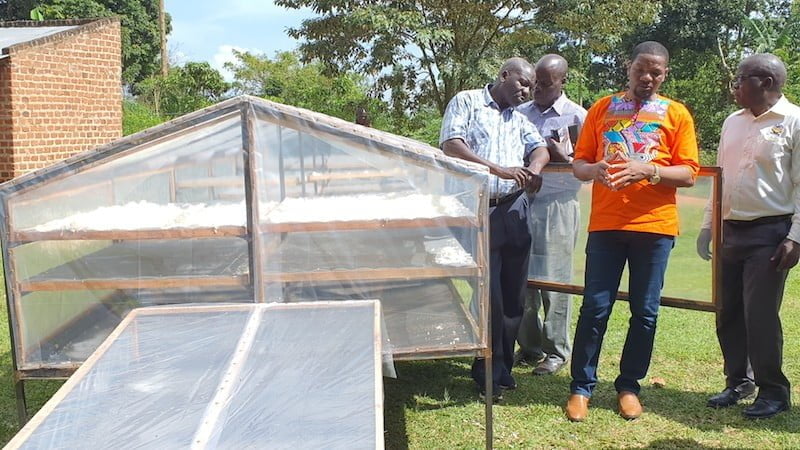
In Uganda for instance with our technical guidance, the Uganda National Bureau of Standards (UNBS) has developed a market incentive guide that incorporates these climate action solutions to drive food safety, health, quality, and environmental sustainability benchmarks along its cassava value chain. With this clear policy, cassava farmers, operating in closely monitored farming units, are adopting these sustainable approaches that automatically translate to safer food. With a clear track record of compliance each step of the way, these farmers are assured of formal and statutory endorsement by UNBS that their produce meets a certain threshold of health, safety, quality, and environmental compliance. And with this, they can charge a premium for such products and earn more. With increased awareness among consumers of the link between food and health, more tend to gravitate towards such certified compliant produce. This lucrative market becomes an incentive to shift towards safer production approaches.
The same is happening with the Standards Organisation of Nigeria (SON) where with our technical guidance they have integrated nature based and climate action solutions in their tomatoes standards from planting using nature based approaches to drying using solar dryers and transportation using solar mobile fridges. This is enhancing the health, safety, quality, and environmental compliance.
Second, we must leverage local communal structures to inculcate this accountability & traceability. As an insightful African proverb reminds us, that “money is sharper than the sword”, the most effective community structure to leverage is communal cooperatives.
Nearly all these informal food traders, who transact not more than $150 daily, are members of local community cooperatives. It is through these cooperatives that they pool resources to raise capital for their enterprises. The structures of these cooperatives need to be leveraged for traceability and checks. National standards bodies then need to implement these clear benchmarks that inculcate climate action solutions that drive food safety through the structure of cooperatives. Where every member and the farm they operate, can be traced and inspected to verify compliance and issue formal compliance certifications. Through such, these cooperatives become not only centers for pooling resources and mobilizing capital, but also checking members to ensure safe production. In addition, through pooling these resources, informal food actors can afford capital assets they need to achieve compliance. For example, through these cooperatives, rainwater harvesting equipment could be acquired for members to ensure water used for irrigation is safe. Solar dryers critical for safe value addition could likewise be acquired. Training on safe use of fertilizers could also be delivered in addition to prioritizing organic fertilizer that is eternally safe.
Third, is leveraging youth enterprise actions as complementary in delivering these climate action solutions that are critical to actualizing these food safety incentives. The safer production approaches demanded by standards benchmarks – be it organic fertilizer in place of chemical ones, solar dryers for safe value addition, or rainwater harvesting equipment – all present enterprise opportunities for willing youth to drive production. The premium for such enterprises has got to be willingness of youth to retool their skills – i.e. improve, refine, and adapt their skills, and work selflessly with peers to develop these solutions through enterprise actions.
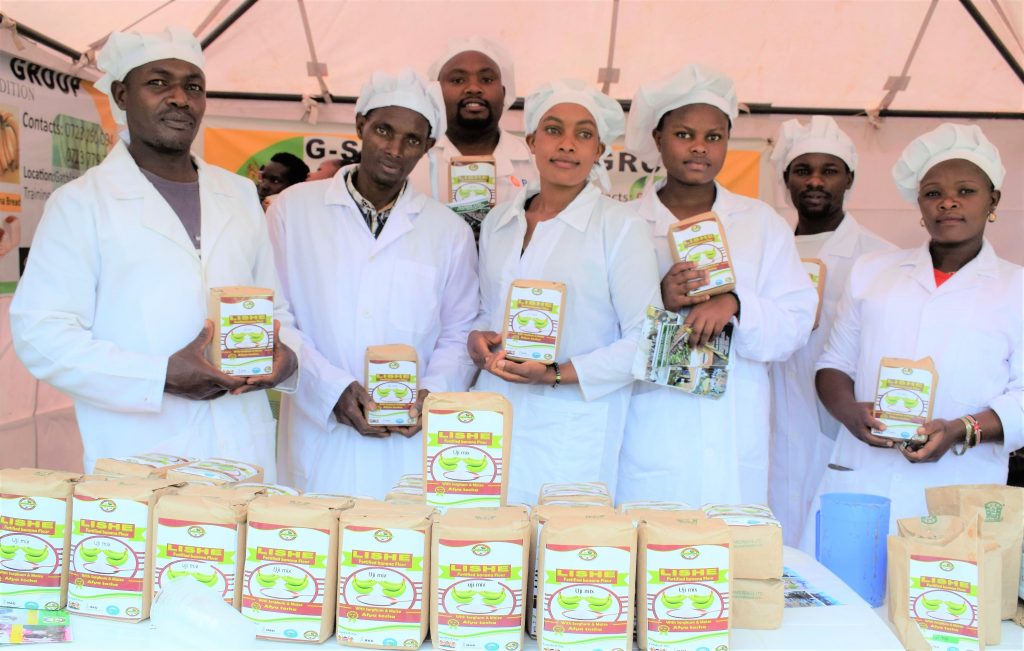
For example, across Africa, we are structurally guiding youth through Innovative Volunteerism to use locally available material and develop mechanical solar dryers that are up to 200% cheaper than imported alternatives. They are being guided to decentralize the same to farmers to enable them add value. Biofertilizer is another area – where youth are converting agricultural waste – be it rice husks, maize cobs and other agricultural waste into organic fertilizer earning over 560% profit. This same approach needs to be applied to the rainwater harvesting solutions. To catalyze such enterprises, policy will also need to be in tandem to lower enterprise costs especially for the youth. A critical aspect can be zero-rating taxes on material and equipment required to develop such solutions.
As an example, in Ghana, a policy aimed at driving adoption of clean cook stoves experienced a leap in non-sate actor investment towards implementation – through a policy move to zero-rate taxation on clean cook stoves value chain. The result was a 70% compliance within a year. Such policy signals that lower capital expenditures are critical to incentivize non-state actor implementation investments in driving food safety. The youth being the most significant non-state actor constituency in Africa by virtue of their numbers, ought to be the target of such incentives.
Dr. Richard Munang is the Africa Regional Climate Change Coordinator at the UN Environment. He is responsible for guiding the actualization of UN Environments climate resilient development strategy for Africa in a manner that ensures human wellbeing


